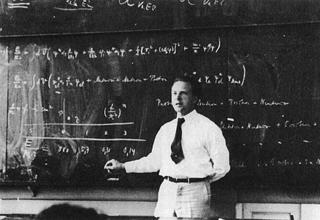I know you know I know

once, a long long time ago, I shared a disgustingly run-down but qualifyingly cheap house off the Beverley Road in Hull with three fellow students during the first term of our second year. they were John and Mary, who had paired up in the first year, Caroline, and Paul. Paul was a lively sprite - gay, Marxist, and Welsh. his spirit was disproportionately huge to his slight frame, his character irrepressible, mercurial, occasionally abrasive, painfully honest, frequently dope-befuddled, but actually as sharp as a pin, and a dead cert for fame and fortune - Director of the National Theatre of Wales, at the very least - somewhere down the line.
one day, he told me that in all the time he'd known me, he'd never heard me say "I don't know". I resented that, at the time, although I took it as part of the mutual intellectual sniping that characterised our relationship, and parried with some bluster about his never asking me hard enough questions. but I knew what he was talking about - a particular sort of arrogance that regards the intellect as a weapon and knowledge as ammunition; and at the time I considered the few people who I judged to be my intellectual equals fair game for a particular kind of debating style that prefers bare-faced sophistry to any admission of weakness - and an empty clip equals weakness, in such a world.
under the superficially wisening influence of the years, I've come to adopt almost the opposite position: the great cloud of not knowing now seems almost to be my default intellectual position, and I exercise immediate and almost instinctive caution on encountering such confident certitude in others.
unfortunately, the association of confidence with authority is embedded as an axiom of social organisation to such an extent that to admit to uncertainty in a wide field of decision-dependent practises would amount to professional suicide. the unholy alliance of politics and economics, for example, requires that each conforms to certain 'laws' in order to sustain the authority of the other. in truth, any economy larger than a potlatch operates according to laws that are as viscous and ephemeral as they are elusive: the Bank of England might as well make its up-or-down decisions about interest-rates on the basis of reading a rabbit's entrails or consulting the i ching for all the predictive insights its 'laws' offer it. the economist - as far from being a scientist as the gambler (whose 'laws' are suspiciously similar) - inhabits a Newtonian enclave in a post-Heisenberg world, where it is considered satisfactory - nay, necessary - to employ terminology unchanged from the Age of Steam (overheated, safety-valve, pressure) to describe economic fluctuations, and, when all else fails, resort to the language of voodoo (the spectre of inflation is one of my faves) - and as long as all this is done with the appropriate air of authority, everyone is happy.
do you remember the first time, as a child, you lay in the sun with your eyes closed and saw those strange floating shapes, like simple-celled transparent protozoa drifting along across the bright pink background glare of the inside of your eyelids? and whenever you tried to focus on one of them, it darted just to the side of your point of focus, and kept drifting, tantalisingly perceivable but absolutely unseeable?
Paul floated out of my circle of acquaintance fairly soon after leaving university, and it took a while for the news to reach me about his developing AIDS, and his subsequent death. I can't remember when we said goodbye to each other. I think it was after finals. he'd been threatening for months that he was going to make a political issue of it, and that nothing would change unless we all did as he was going to do - to sign in to the exams, then walk out. which is what he did. stupid prat. it's unlikely that we would ever have met again, but it's always salutary to consider that all farewells, however casual, contain the germ of that possibility - that you'll never see that person again.
the little we do know about ourselves and our place in the universe seems to be maintaining the same ratio of understanding to ignorance as it has throughout history: if anything, there seems to be a 'law' that supports this, which would state, if it were susceptible to definition, that what seems to be the case now will eventually turn out to be several miles off. if our understanding of the largest and smallest observable phenomena could have expanded by so many degrees of magnitude in bare centuries - each expansion preceded by statements of scientific certainty that this (the atom - the celestial sphere) represented the unsurpassable limit of cognition - then how much further off are we likely to be about current certainties - or, in the case of the post-Heisenberg world (already almost a century on), uncertainties?
the universe is no respecter of lives or careers or reputations - it proceeds, as it has always done, in ways that remain as mysterious and unknowable to most of us as when the first storytellers spun the first tales out of the rising sparks from the cavemouth fire and the fixed sparks in the black night sky.
me? don't ask me. I know naaaaathink.
No comments:
Post a Comment